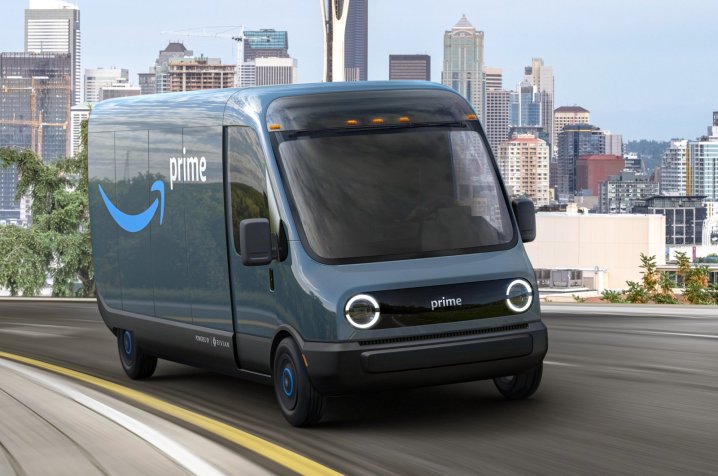
Amazon has ordered 100,000 examples of a mysterious electric delivery van from Michigan-based startup Rivian, according to company founder and CEO Jeff Bezos. The order will help the firm reach its goal of becoming net carbon neutral by 2040, while allowing it to save a substantial amount of money by trimming its annual fuel budget.
Consider it a return on an investment. In February 2019, Amazon announced it led a $700 million investment round in Rivian. It explained it was inspired by Rivian’s vision for the future of electric transportation, and it called the firm an impressive organization. “We’re thrilled to invest in such an innovative company,” the retail giant summed up.
Amazon hasn’t revealed how much it will pay for the 100,000 vans, but British magazine Autocar learned the first examples are scheduled to begin delivering your Prime parcels in 2021. 10,000 units will be on the road by 2022, and the full, 100,000-strong fleet will be deployed by 2030, according to the magazine. Rivian will begin testing prototypes in 2020.

Rivian doesn’t currently make a van. It doesn’t even mass-produce cars, though it’s planning to start production of an SUV named R1S and a pickup truck called R1T by the end of 2020. Both models were previewed by concept cars during the 2018 edition of the Los Angeles Auto Show, and both will be made in a former Mitsubishi factory located in Illinois. The van, though? This is the first we’re hearing of it. Computer-generated renderings show a tall, boxy vehicle with round LED headlights that give it a friendly look, and a huge windshield for maximum visibility. “Powered by Rivian” logos hint at the technology under the sheet metal.
We’ve contacted Rivian for more information on how they plan to ramp up van production and will update this story if we hear back.
The news hardly comes as a surprise. Rivian has stressed time and again that the platform it developed from scratch to underpin the R1T and the R1S is highly flexible. There’s no reason why it can’t underpin a van. And, we know the company wants to expand its range of models during the 2020s in order to gain a foothold in more areas of the market. Tesla isn’t its target; it’s aiming at segments of the industry that haven’t electrified yet, so making a van fits this strategy well. The van will be developed and built exclusively for Amazon, however.
In the meantime, the retailer will continue taking delivery of over 20,000 Mercedes-Benz Sprinter vans it ordered for its American division. The deal with Rivian could put the German firm in an unenviable position; Amazon’s commitment to the Sprinter played a significant role in convincing Mercedes-Benz to invest in building it on our shores.
Updated 9-19-2019: Added official photos, new information.
Editors' Recommendations
- Amazon Music now has a car mode, but don’t use it while driving
- 2022 Ford E-Transit electric van will make delivery services greener
- What Lyft and Aptiv learned from 100,000 self-driving car trips
- Amazon adds to its delivery fleet with orders for at least 2,237 more vans




